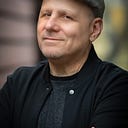Member-only story
Wonder Is a Skill We Are All Capable of Relearning
Why this most human of emotions matters, now more than ever
I WONDER. All great discoveries and personal breakthroughs began with those two words.
“Wonder” is a wonderful word. It’s impossible to say it aloud without smiling. The English “wonder” traces its roots to the Latin miraculu, which means “anything wonderful, beyond human power…a supernatural event.” A miracle, in other words.
You don’t need to believe in the supernatural to experience wonder. No less a scientist than Albert Einstein called wonder the source of all art and science. “He to whom this emotion is a stranger, who can no longer pause to wonder and stand rapt in awe, is as good as dead; his eyes are closed,” he said.
“All philosophy begins with wonder,” Socrates said. Aristotle agreed, adding that wonder is the vehicle we use to escape ignorance. Centuries later, Thomas Aquinas linked wonder with its cousin, awe, noting that “poets and philosophers are alike in being big with wonder.”
Wonder is a complex emotion that contains elements of surprise, contemplation and joy — and, most important, a heightened state of consciousness.
Wonder is emotional and physical. When we experience wonder, explains psychologist Nico Frijda in…

